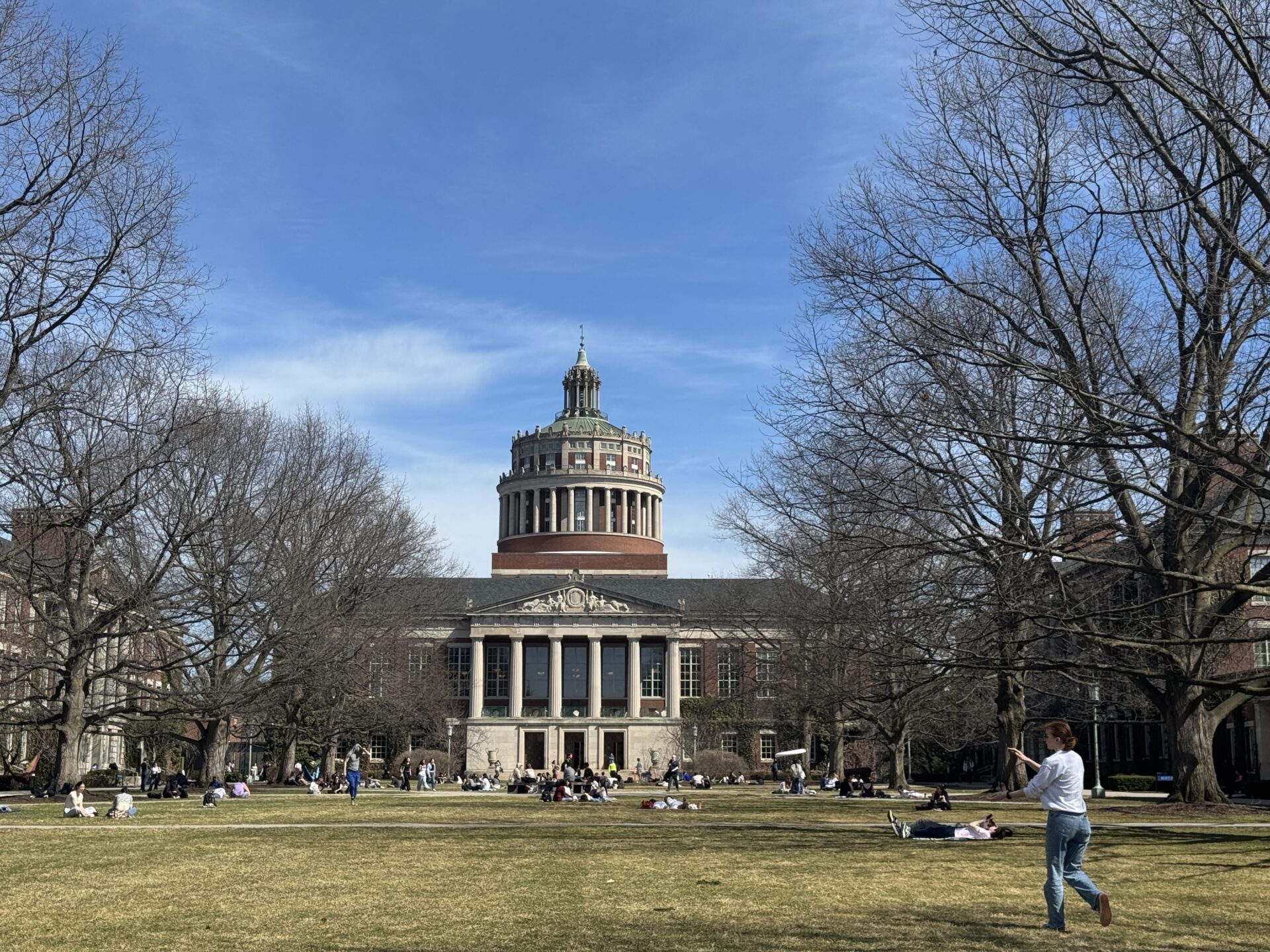Studying abroad in college is often described as life-changing. It’s a chance to explore a new country, but it’s also a fantastic opportunity to learn more about yourself, step outside your comfort zone, and experience a different culture in a truly immersive way.
As a rising senior, I’ve watched many of my friends pack their bags and head off to the United Kingdom, Denmark, South Korea, and other countries around the world. My friends’ stories have been filled with everything from culture shock to unexpected friendships, and each one has made me more excited (and a little nervous!) about planning my own study abroad experience.
I’m currently in the middle of the study abroad application process, working closely with the University of Rochester’s Center for Education Abroad and waiting to hear back from the programs I applied for. Wish me luck!
To give you a better sense of what studying abroad can really be like, I talked with my friend Amy, a senior who studied abroad last spring in Japan. Here’s what she shared about her time abroad, the challenges she faced, and the memories she made along the way.
- Why did you study abroad in Japan? How long did you study abroad?
I studied in Kyoto from April to August 2024, spending a total of five unforgettable months there. I studied abroad in Japan because I was deeply fascinated by Japanese culture and wanted to experience it firsthand. My interest was sparked during my freshman year when I took Professor Bernardi’s class on Itami Junzo, where I was introduced to the concept of Nihonjinron. Learning about Japanese social and cultural norms in that class made me eager to immerse myself in Japan and see how these theories played out in everyday life.
I had also been studying Japanese for about three years, and I wanted to challenge myself by using the language in real-world settings. Kyoto, in particular, felt like the perfect place to study because of its rich history as the former imperial capital. As someone who loves history, I knew it would be an incredibly culturally enriching experience.
- How was your experience studying abroad?
Studying abroad in Japan was one of the most memorable experiences of my time at the University of Rochester. It pushed me out of my comfort zone in the best way possible—I got to connect with Japanese students as well as peers from all over the world.
One of my favorite parts of the experience was the cross-cultural collaboration in my Japanese culture and history class. We had students from different backgrounds sharing their perspectives on various topics, which made for really engaging and thought-provoking discussions. Beyond academics, I also learned so much just by talking to people—hearing about their journeys, their academic and professional aspirations, and what led them to study abroad in Japan as well. Having a shared interest in Japanese culture gave us an immediate connection, which really helped me feel a sense of belonging when I first arrived.
- Were you able to live like a local? How was that?
At first, adjusting to life in Kyoto was a bit of a challenge. Coming from New York, where everything moves fast and convenience is key, Japan’s lifestyle felt quite different. Kyoto is a city, but much quieter and more structured in its daily rhythms. There were also a lot of unspoken customs and norms that I had to learn along the way.
For example, I was surprised to find that there were virtually no public trash cans, which made disposing of garbage a bit tricky at first. But I quickly learned to carry a plastic bag with me for trash or to find convenience stores with designated bins. Another small but interesting adjustment was figuring out the bus system—unlike in the U.S., where you pay when you board, in Kyoto, you enter from the back and pay when you exit.
Language was another big adjustment. The Japanese I had learned in the classroom felt much more formal and structured than the way people actually spoke in daily life. At first, conversations with local students at Kyoto University felt a bit stiff, but after joining clubs and spending more time with them, I started picking up on natural intonations and expressions. Eventually, I felt much more confident in my ability to communicate in a more natural, conversational way, which made traveling around Japan even more enjoyable.
- What was your favorite experience?
One of my absolute favorite experiences was joining the Aikido club at Kyoto University. It was my first time learning a martial art, and doing so entirely in Japanese made it even more challenging. The techniques involved specific terminology and advanced vocabulary that I had never encountered before, so at first, I was completely lost. But thanks to the support of my clubmates and the demonstrations from our captains, I gradually improved.
One of the most rewarding moments was when I was able to take the Level 5 belt test, conducted entirely in Japanese and supervised by a black belt Aikido master. It was an incredible feeling—not just because I had advanced in Aikido, but because I had navigated the entire experience in Japanese, from training to test-taking.
Amy’s story reminded me that studying abroad isn’t just about traveling. Her story showed growth and connection. One’s study abroad experience can leave a lasting mark on who you are and how you see the world.
As I continue my own study abroad journey, hearing from students like Amy makes me even more excited about what’s in store for me. If you’re considering studying abroad, I hope her story inspires you to start the process. You’ll never know what incredible moments are waiting on the other side of the world!

